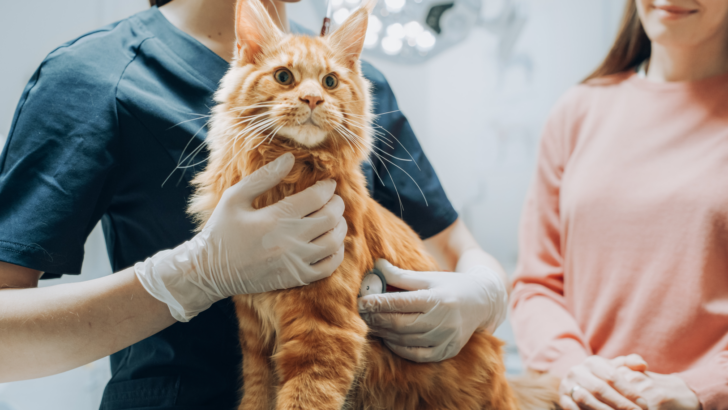How long do you keep a cat confined after spaying? What even is it? How will your cat behave afterward?
There are so many questions that are making you wonder if you were even ready for this. You’re so scared that something is going to go wrong, just as much as you genuinely love your cat, and you want her to get through this without any issues.
You know that this is a standard procedure, but you don’t want to play the odds. Your love for your kitty is too strong to play some mindless games. That’s why you’d rather be extremely careful than have to wonder what you did wrong if something goes sideways.
That’s why we thought to give you a rundown of all the information that you may need during this period, so you know how long to keep your cat confined after spaying!
What is spaying?
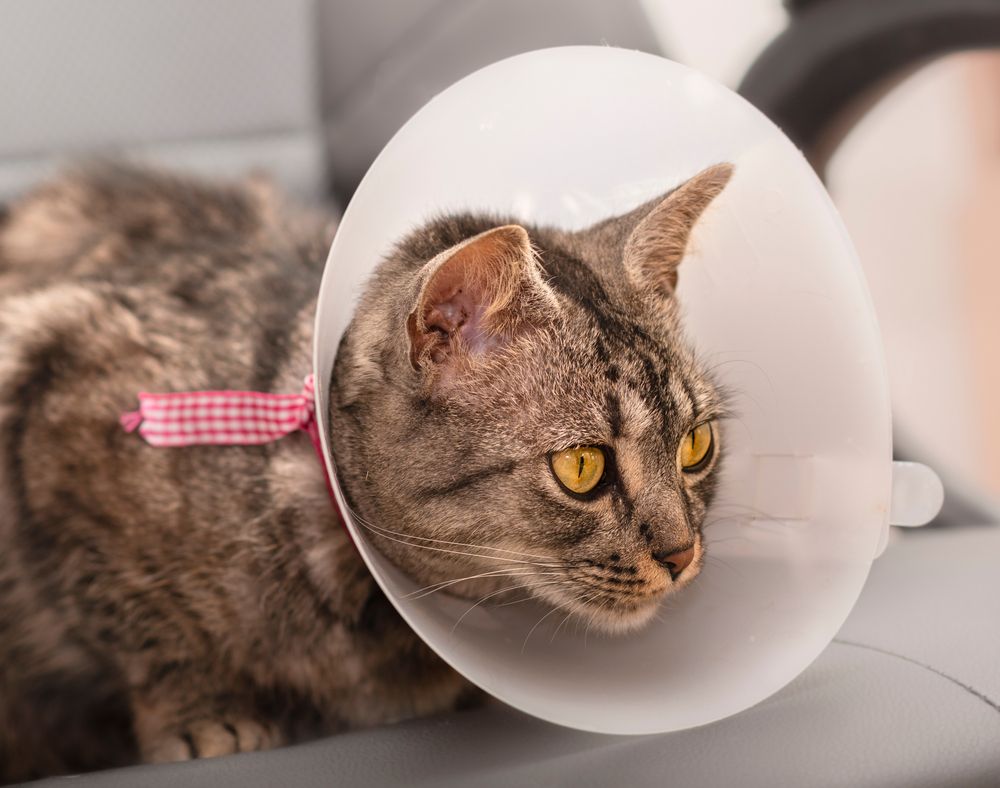
Spaying is a major surgery done on cats. It’s the procedure that eliminates your cat’s reproductive possibilities and stops your cat from going into heat. During the surgery, the veterinarian will make an incision in your cat’s belly to remove the ovaries and/or the uterus.
Before the surgery, your veterinarian may tell you to put your cat on a fast on the day or night before the procedure. This may seem jarring to you, but once you talk to your veterinarian, you’ll understand that it’s not something that you should be afraid of.
Most of the time, it’s more than okay to give your cat water during this period. However, you should talk about the specifics of this particular fast, because you don’t want to put your cat’s health into jeopardy.
The incision will be closed with a couple of stitches after the surgery is done. The stitches will be taken out in seven to ten days, and your cat will make a full recovery in no time.
During the recovery period, you’re worried about your cat because she’s not the charming and playful being that she’s always been. You know that this was a major procedure for her, so you want to make things as comfortable as possible for her!
That’s why it’s important to answer the question of how long to keep your cat confined after spaying?!
How long should you keep your cat confined after spaying?
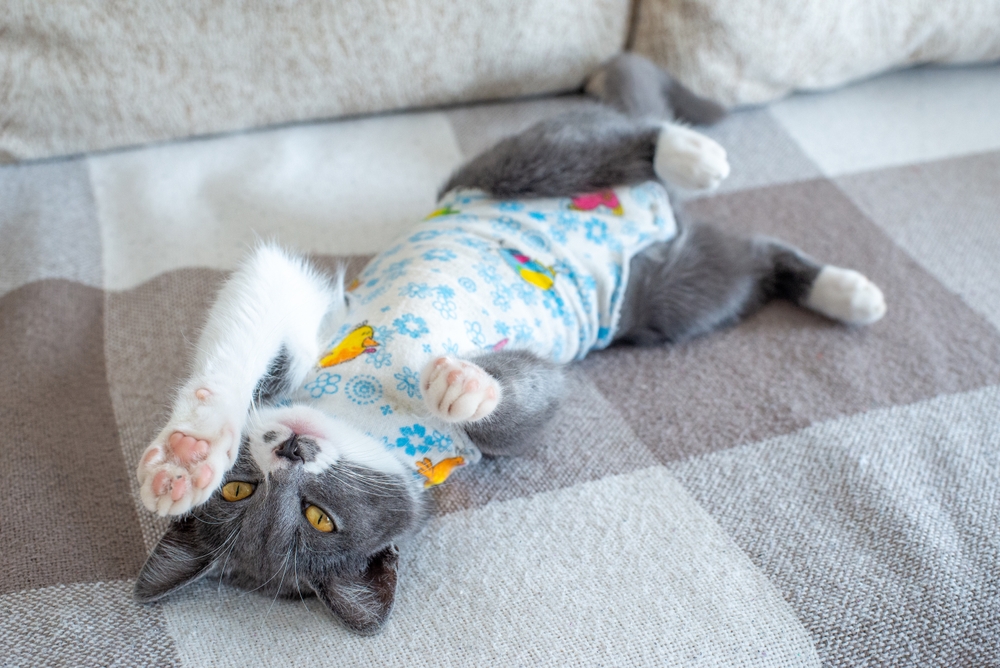
Your cat will need a lot of time to recover and heal from this surgery. Because she doesn’t understand what’s going on, nor does she have the ability to comprehend what she’s gone through, she’ll likely want to live her life just as actively as she used to.
However, for the time being, you’ll have to stop her from doing those things and confine her for a while.
It’s recommended that you confine your cat to a kennel for at least 24 hours after you bring her home. During this time, you’ll have to make sure that your cat has everything that she needs, like the litter box, food, water, and so on. You’ll have to keep all of those things close to her so that she doesn’t feel any sort of discomfort.
Your veterinarian will make sure to tell you everything you need to know about the aftercare. For example, he’ll be the one to tell you what type of food you should give your cat after spaying, how much you should offer her, and so on. He’ll also, probably, talk to you about any type of special needs your cat may experience during this period.
It’s important to keep your cat from running, jumping, or aggressively playing for 7 to 10 days. These activities make it possible for her wound to open up, and it could get infected, which leaves her at a very high risk for other complications.
Post-spaying recommendations
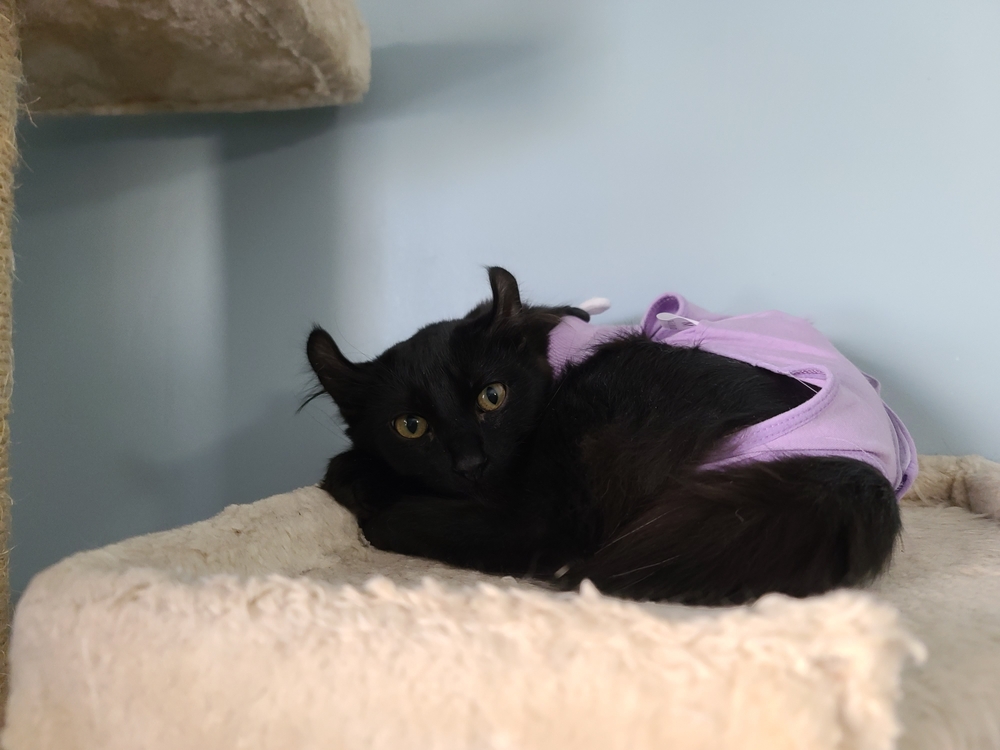
Besides keeping your cat confined for 24 hours, and keeping her from going nuts for the next 10 days, there are also other things that you should consider. It’s important to have a couple of things in mind so that this period isn’t stressful for you or your furry baby.
Your veterinarian will probably tell you everything that you should know, and that’s definitely the best course of action. However, if you’re looking for some other recommendations for the post-op period, then it’s good that you’re here.
Firstly, you should avoid bathing your cat during her recovery period. Bathing her could make her agitated and stressed out, which she really doesn’t need right now. She has to be relaxed for her recovery to go smoothly. It’s also an issue because you may irritate the wound, which could lead to her scratching it and infecting it.
Secondly, please don’t even think about letting her go outside. She doesn’t need to be playing around in the dirt and the cold. During this time, her body is frail and susceptible to bacteria. It’s better to keep her inside the house so that she can spend her time being cuddled up in a warm and dry blanket.
Thirdly, make sure to check her wound at least twice a day. What you want to look for is any kind of changes that may occur. For example, if you see swelling, any sort of discharge, or bleeding, you should take your kitty to the emergency veterinarian. Otherwise, this “small” change could become fatal if it’s not treated correctly.
Are there any risks of spaying?
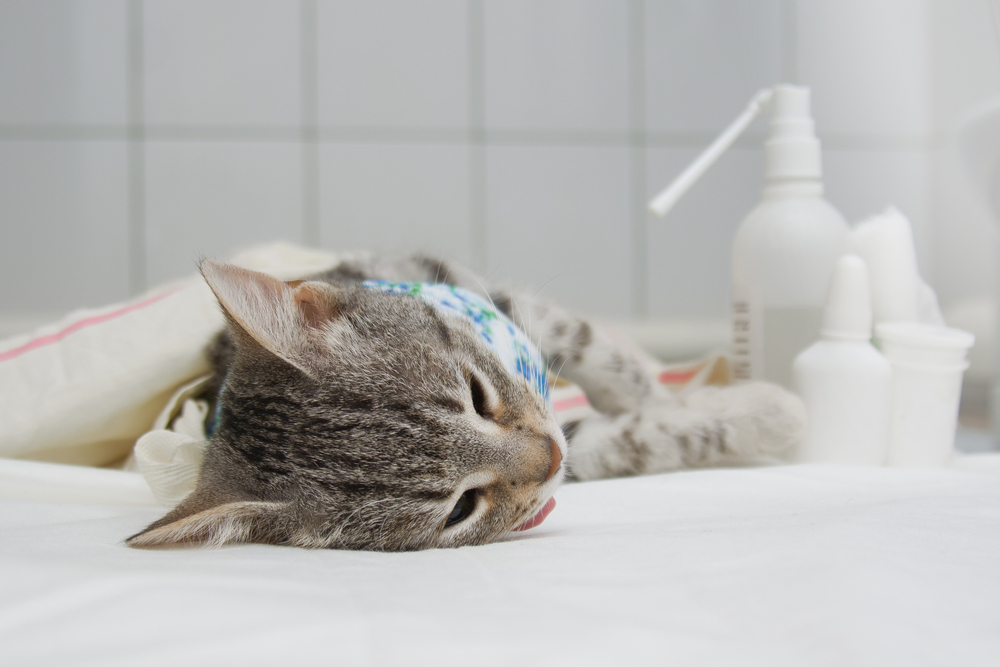
Besides asking yourself about how long to keep your cat confined after spaying, you should also consider the potential risks that you and your kitty could face during this period. This is a standard procedure, but it’s still an operation and every single one of those has certain complications and risks.
We’re not telling you these to discourage you from spaying your cat, we’re simply making sure that you’re aware of what could happen and how you should behave in these moments.
Most of those risks revolve around the wound getting infected. Other than that, you just have to be aware that your cat won’t be able to have any offspring, and that her behavior could change drastically.
She could become much more mallow after spaying. Even though you used to play together before this operation, she could turn into a couch potato that doesn’t want to move. If she chased the laser with vigor before, it’s possible that this activity won’t even draw her attention now.
When should you worry?
You don’t have to worry about your cat’s behavioral changes, although you could talk to the veterinarian about them. Other than that, the only changes that you should look for are the ones that may occur around the wound and stitches.
For example, if you sense a bad smell coming from the wound, then it’s probably infected. You should also look for redness, swelling, bruising, bleeding, puss coming out of the wound, and other similar things that definitely aren’t good signs.
However, we’ve already covered that. There are things that you may not recognize right away. You may not pay attention to it, but once you realize that your cat is becoming increasingly lethargic, then you should definitely take her to the vet.
You should also pay attention to the amount of food that she’s eating, as the lack of appetite could be a sign of something bad happening in her body. This could lead to an increase in pain, and even though your cat may not know how to communicate that she’s in pain, you’ll be able to see the signs.
The signs of pain in a cat are: shaking, drooling, and hiding in secluded areas of the house. It doesn’t matter if it’s an animal or a human being, no one should be in such pain, and you’ll have to take your cat back to the clinic.
Benefits of spaying your cat
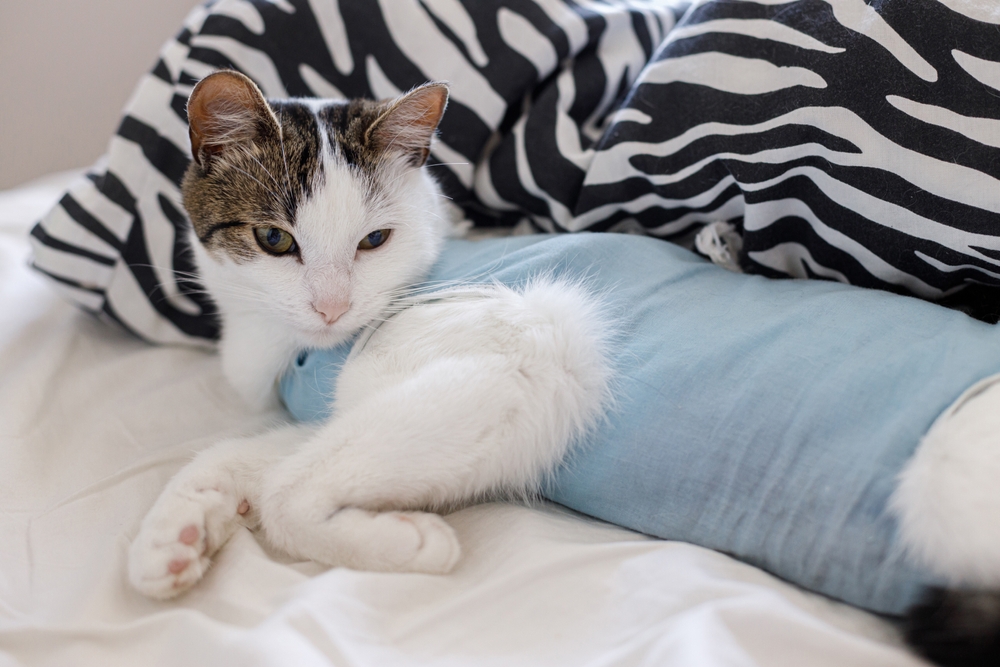
It’s not just about how long to keep your cat confined after spaying, it’s also about the pros and cons of spaying your cat. Keeping her confined should be the least of your issues since she’s going to be groggy through that period either way. However, it’s important to mention a couple of benefits of spaying your cat.
For example, your cat is much less likely to develop cancer or mammary gland tumors. The risk of developing cancer is almost zero if you’re able to spay your cat before her first heat cycle, as the ovaries and uterus will be taken out, and she’ll be able to live without any issues.
It’s also important because you’ll be able to control the population of cats that you have in your home.
On the other side, spaying your cat is also good because you won’t have to deal with unwanted and uncontrollable behaviors that she’ll exude during the heat.
Either way, the risks are minimal if you’re able to take good care of your cat after spaying! It’s a simple procedure, that could actually bring you closer together and make your feline happier in the long run.
